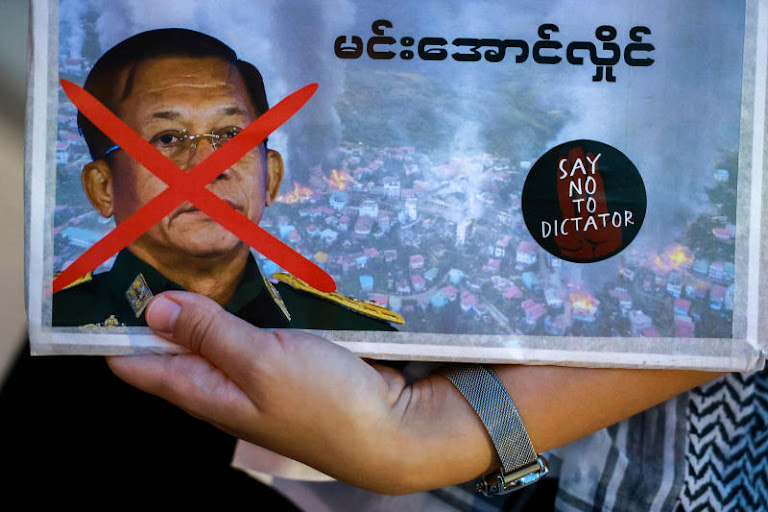Anwar Seeks Myanmar Ceasefire After Quake, Risks Junta Legitimacy
As ASEAN chair, Anwar’s meeting seeks a ceasefire after the quake, raising concerns about legitimizing the military regime.

The upcoming meeting between Malaysian Prime Minister Anwar Ibrahim and Myanmar’s junta chief, Min Aung Hlaing, presents a tangled web of humanitarian need, political maneuvering, and international relations. As the Bangkok Post reports, Anwar, acting as chair of ASEAN, intends to meet with the general to push for a ceasefire extension following the devastating earthquake in March. This meeting, ostensibly driven by humanitarian concerns, highlights the uncomfortable compromises sometimes required in the face of disaster. But it also illuminates the fraught reality of engaging with a regime that has systematically undermined democratic norms and brutalized its own people.
This isn’t simply a meeting between two leaders; it’s a collision of systems. ASEAN has, since the 2021 coup, largely shunned the junta, barring its leaders from official gatherings. This attempted isolation was a statement, an attempt to hold a line against democratic backsliding and military overreach. Yet, natural disasters, like the recent 7.7 magnitude quake, have a way of scrambling these carefully constructed diplomatic frameworks. As the Bangkok Post article explains, the quake has offered Min Aung Hlaing a rare opportunity to re-engage on the international stage, cloaked in the language of humanitarian aid. The earthquake hasn’t just caused physical destruction; it’s shaken the foundations of ASEAN’s strategy towards Myanmar.
We must consider the potential downsides of this meeting:
- Legitimization of the junta: Meeting with Min Aung Hlaing risks conferring a veneer of legitimacy on his regime, potentially undermining ASEAN’s stance and emboldening the military.
- Exploitation of aid: There are serious concerns that humanitarian aid channeled through the junta could be diverted for military purposes or used to consolidate its power.
- Undermining of the opposition: Engagement with the junta could weaken the position of pro-democracy groups and the National Unity Government, further marginalizing them in the struggle for Myanmar’s future.
This situation forces us to ask difficult questions. Does prioritizing immediate humanitarian needs require a compromise of long-term democratic principles? Is engagement, however fraught, a necessary step to mitigate suffering? Or does it simply empower a brutal regime?
“This isn’t just about aid; it’s about influence. Every interaction with the junta, whether framed as humanitarian or political, is a negotiation of power and legitimacy. The earthquake may have opened a door, but it remains to be seen who will walk through it and what price they will pay.”
Anwar’s decision to meet with Min Aung Hlaing represents a high-stakes gamble. He’s navigating a complex terrain where the imperatives of humanitarian aid intersect with the realities of political expediency. The success or failure of this gamble will resonate far beyond Myanmar’s borders, shaping the future of ASEAN’s response to the crisis and potentially impacting the delicate balance of power in the region.









